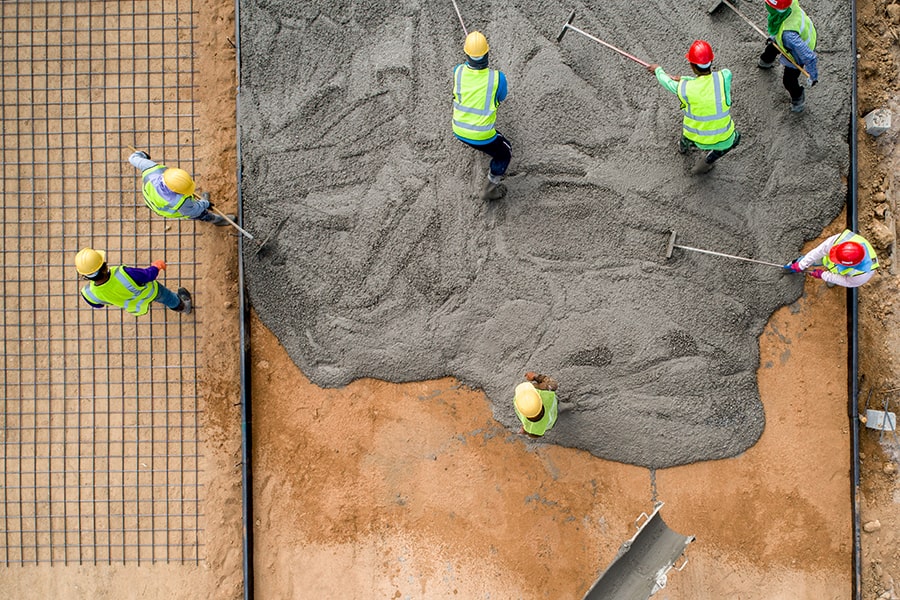There are 5 key social qualities of a great engineer that aren’t taught in school, but you need to know to reach your full potential.
These qualities can help any engineer level up, and they’ll save you from fitting into that tired Hollywood stereotype of the one-dimensional, reclusive engineer.
#1 Explain complex subjects to a fifth-grader
Throwing around big, technical words when talking to non-engineers helps nobody—except maybe your ego. Keep in mind that most people don’t have the same expertise as you, and they haven’t been staring at equations and theorems all their lives.
In fact, struggling to simplify subjects could mean you don’t understand them as well as you think. Perhaps you’ve just memorized the lingo from textbooks.
Now, if you can make a subject accessible to everyone, you’ll bring people together. When folks truly grasp a concept, they’re more likely to be receptive and supportive. Plus, you’ll nip any communication issues in the bud.
So, like a charismatic politician, captivate your audience. The more influential your voice as an engineer, the better your project’s chances of success. Let’s face it, a vocal technical mind can lead better than a business mind.
How to gain this quality?
Master your subject inside and out. I mean, know every nook and cranny related to your field. Only then can you explain a complex subject in easy-to-understand terms.
I’ve found that writing about a topic really helps me grasp it fully. Writing exposes any gaps in your logic. For examples of simplified technical discussions, check out my articles:
- The insane engineering of the SpaceX Raptor engine
- Substation current limiting reactor sizing calculation
- Utility power factor penalty calculation simplified
- Substation CT saturation calculation made easy
#2 Be the person who goes the extra mile to help others

A helping hand goes a long way. Remember that time you were stranded on the side of the road with a broken-down car? It was the worst, right?
This feeling crops up in engineering all too often. You might hit a mental brick wall trying to understand a tricky concept or problem. Before you know it, you’re tearing your hair out in frustration because nothing seems to work.
That’s why empathy and helping others without expecting anything in return is powerful. You’ll quickly earn the respect of those around you. I can tell you from my own experience, I wouldn’t be where I am today without the help of fellow engineers. That’s why I always give back.
How to gain this quality?
It’s simple. Just be an all-around awesome person. Don’t be an asshole. If you see someone struggling with their work, lend a helping hand.
Also, if someone asks you a question, take the time to answer it. Chances are, you can provide a helpful response in just a few minutes.
#3 Stay upbeat, even when things get rough
Picture a volcano erupting in your backyard, but hey, at least the lava took care of those pesky weeds, right? The point is, no matter how tough a problem gets, stay optimistic. And don’t let irate clients, fuming over a problem you caused, get you down.
Optimism might seem small, but it’s a massive part of being an ace engineer. Take the NASA engineers working on the Apollo program, for example. They pushed through countless challenges to land on the Moon. That same unshakable optimism will be crucial for SpaceX’s mission to Mars.
As a young engineer, I knew this amazing senior engineer who always kept his cool. In one project, our client was livid for various reasons. We all thought someone was gonna get the axe due to the client’s fury. To be honest, I believed both the situation and the technical problem were beyond saving.
But that senior engineer stayed calm throughout. He reassured me everything would be okay, seeing the doubt in my eyes. Turns out, he wasn’t just blowing smoke. That same week, we attended a meeting with an army of suited-up folks ready for a showdown.
Our hero calmly stood up and, without missing a beat, resolved the issue. Despite being on the defensive and taking endless heat, he didn’t break a sweat. He swiftly cut through the nonsense and delivered a working solution.
I later learned that he had been through the wringer and knew the importance of staying level-headed. Because, after all, tomorrow’s always a new day.
How to gain this quality?
Tackle challenging problems, even if they’re beyond your current skill set—just make sure you have senior engineers to back you up. Otherwise, it goes against the engineering code of ethics.
I’ve found that the more uncomfortable a problem makes you, the faster you’ll grow. Plus, you’ll gain confidence as you become the go-to person in sticky situations. This confidence then morphs into an otherworldly optimistic attitude.
#4 Be a people person, no matter who you’re dealing with

Engineers don’t just hunch over desks crunching numbers. Some interact with a wide variety of people almost daily, including:
- Other engineers
- Investors
- Contractors
- The public
- Clients
- City officials
- Lawyers
- Journalists
As you might’ve guessed, a key theme in this article is your ability to connect with people. If you can hit it off with all the groups mentioned above, you’ll be unstoppable. Projects will wrap up more quickly, and your life will be way easier.
For instance, not every engineer knows how to talk to construction workers. Imagine telling a group of exhausted workers at the end of the day that they need to fix a problem they caused or they won’t get paid. Many of them would silently tell you to go fuck off!
But a smooth-talking engineer can get those workers back on the job. It’s a skill to communicate effectively and help people understand a situation. I’ve even written about 12 ways engineers can improve their public speaking.
Public speaking is an excellent way to sharpen your one-on-one conversation skills. In return, you can build deep, valuable relationships. Trust me, sometimes getting people to respond is like pulling teeth. But if you’ve built rapport, you’ll rarely get the cold shoulder.
How to gain this quality?
Step out of your comfort zone and chat with a diverse crowd. You can’t treat everyone the same way and expect identical results.
I know that many people become engineers because they struggle with social skills. But surprise, surprise—engineering involves a ton of social interactions. And it only gets more intense the higher you climb up the ranks.
#5 Lift up those around you
Go the extra mile to help others improve at their jobs without expecting anything in return. Offer to review your fellow engineers’ work. Most of the time, they’ll appreciate it since you’re providing an extra set of eyes to catch potential errors and prevent future issues.
At the same time, teach others about technical subjects and clarify complex concepts. Don’t hoard knowledge, thinking it’s a zero-sum game.
And hey, don’t be shy about giving compliments when they’re well-deserved. I knew this older guy who would casually mention your work to others when you weren’t around. He wasn’t looking for anything in return and never made it about himself. Plus, he made your work sound even better than it actually was.
I only discovered this because a colleague filled me in. They said, “[so and so] was raving about the fantastic job you did on [project X].” I thought that was super cool, and my respect for him skyrocketed. Turns out, he just loved engineering and finding unique solutions to tricky problems. He didn’t care who got credit; he called it like he saw it.
How to gain this quality?
Just be an all-around awesome person. Realize it’s not always about you. Give praise to others who genuinely deserve it, without seeking anything in return. This is especially important for younger engineers who need that confidence boost.
Life isn’t always a competition, particularly when it comes to teamwork. The more confident your team members are, the better chance your project has of succeeding. Remember, you don’t have to push someone down to rise up.
Conclusion
Becoming a top-notch engineer takes more than technical prowess; it also requires the five non-technical qualities we discussed. They’ll help expand your influence and make your voice resonate with more people, which I believe is a key factor in becoming a 10x engineer.
Which of these 5 key social qualities of a great engineer do you admire the most? Do you think an engineer can succeed in today’s world without any social skills?
